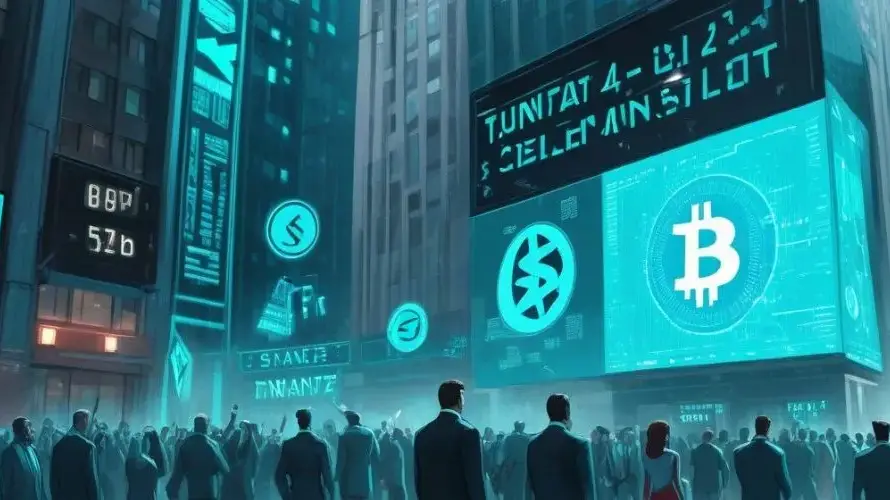Paris Saint-Germain is accelerating its digital transformation. The French club has announced a major expansion of its fan token ecosystem, deepening its integration of blockchain technology across ticketing, loyalty, and sponsorship programs. With fan tokens becoming a key financial and engagement instrument, PSG’s strategy signals how elite European clubs are adapting to the next era of sports finance.
The initiative builds on PSG’s pioneering partnership with Socios and the Chiliz blockchain network, first launched in 2020. The club’s $PSG token, among the most traded in global sport, will evolve from a symbolic digital collectible into a multi-utility platform supporting a range of fan and commercial activities.
According to PSG executives, the goal is to link fan participation, brand partnerships, and digital commerce into one interconnected ecosystem by 2026. The expansion arrives as European football increasingly aligns with Web3 technologies under new regulatory clarity and growing institutional interest in tokenized finance.
From Collectibles to Functional Tokens
When the $PSG token debuted, it was largely seen as a fan engagement experiment. Supporters could vote on jersey designs or pre-match messages through the club’s app. But in the five years since, tokenization has matured, and PSG now plans to turn the token into a bridge between physical and digital fandom.
The club’s new roadmap includes blockchain-based ticketing, member rewards, and direct participation in digital events. Token holders will gain early access to match tickets, exclusive behind-the-scenes content, and gamified experiences tied to live matches. Smart contracts will manage these processes automatically, ensuring transparent redemption and real-time verification.
PSG’s innovation team has emphasized that the evolution of fan tokens is not about speculation but about creating sustainable, utility-driven digital communities. Each token transaction and engagement will feed into a secure on-chain identity that allows fans to accumulate status and privileges across multiple seasons.
This integration represents a step toward a fully tokenized fan economy, where engagement is measurable, verifiable, and rewardable.
Financial and Commercial Expansion
The $PSG fan token is not just a community tool it has become a key commercial asset. Blockchain analytics show that the token’s cumulative trading volume exceeds 70 million dollars since its launch, with strong liquidity on major exchanges.
For PSG, this financial success has opened new sponsorship opportunities. Several fintech and digital asset firms are integrating with the club’s ecosystem through token-linked promotions, payments, and loyalty programs. The model allows brands to offer real-time rewards or discounts to token holders, verified on the blockchain.
In 2025, the club’s commercial department began testing a sponsorship model where partner brands receive access to engagement data directly through the blockchain ledger. This data transparency helps measure campaign performance while protecting user privacy.
Sponsors benefit from a digital ecosystem where visibility is tied to measurable engagement rather than traditional exposure metrics. According to market analysts, this innovation could reshape how clubs value partnerships, shifting from static logo deals to dynamic, performance-based contracts.
The token model also contributes to financial diversification. As match-day revenues fluctuate and broadcasting contracts evolve, digital assets provide an additional income stream that connects directly to the global fan base.
European Regulation and Institutional Legitimacy
PSG’s expansion aligns with Europe’s regulatory progress under the Markets in Crypto-Assets Regulation (MiCA), which provides legal certainty for token issuance and operation across the European Union.
Under MiCA, digital asset providers must meet transparency, reserve, and disclosure standards. By integrating fan tokens into a compliant framework, PSG is setting a precedent for responsible innovation in sports finance.
The club works closely with French financial authorities to ensure all token-related activity meets national advertising and consumer protection rules. Transparency and education are central to this effort. Every fan token promotion now includes risk disclosures and educational content emphasizing utility over speculation.
This regulatory alignment has reassured sponsors and institutional partners. European financial institutions are beginning to view fan tokens as a legitimate engagement and payment layer rather than a volatile asset. In France, fintech partnerships linked to sports tokens have already received preliminary approval from the Autorité des Marchés Financiers for limited-use cases in loyalty and event payments.
Legal experts describe PSG’s approach as a “compliance-first” model that could shape industry standards for other clubs entering the tokenization space.
Technology and Global Fan Engagement
PSG’s strategy is not limited to Europe. The club’s global fan base estimated at over 150 million provides a massive testing ground for digital integration. The token ecosystem allows international fans to interact with the club beyond geography, bridging markets from Asia to Latin America.
The 2026 roadmap includes cross-platform interoperability, enabling fans to use $PSG tokens in third-party applications and metaverse environments. For example, token holders could access virtual stadium experiences or interactive content within blockchain-based fan platforms.
These digital extensions have tangible commercial value. Tokenized engagement metrics can help the club identify high-value international fans, personalize content delivery, and tailor merchandise or event access.
In addition, PSG is exploring collaborations with payment networks to enable token-based microtransactions for digital content and e-commerce. Fans could use tokens to purchase short-form media, digital collectibles, or exclusive interviews, creating a fully integrated fan economy.
Executives describe this evolution as the fusion of media, finance, and culture a model that transforms fandom into a continuous, interactive experience.
The Future of Sports Tokenization
PSG’s expansion represents more than a club initiative it is part of a broader transformation of the European sports economy. Tokenization is moving from novelty to infrastructure, providing the foundation for new business models based on transparency, efficiency, and inclusivity.
Industry analysts predict that by 2028, fan tokens and related digital assets could represent 10 percent of total commercial revenues for leading European clubs. The ecosystem will likely expand to include ticketing, sponsorship settlements, and decentralized governance for community-driven projects.
For fans, the shift could redefine participation. Blockchain allows for verified ownership of experiences and digital assets, giving supporters a tangible stake in the club’s digital evolution. For clubs, the technology offers both resilience and scalability essential qualities in a competitive and fast-changing sports market.
PSG’s leadership in this space reinforces its reputation as one of football’s most innovative institutions. The club’s willingness to experiment with digital engagement has made it a reference point for how sports organizations can blend tradition with technology.
Conclusion
Paris Saint-Germain’s fan token expansion ahead of 2026 represents the convergence of digital innovation, financial modernization, and cultural strategy. By turning blockchain from a marketing tool into an operational platform, the club is redefining how value and engagement flow between teams, sponsors, and supporters. As regulation solidifies and digital ecosystems mature, fan tokens are poised to become integral to the future of European sports. PSG’s model demonstrates that tokenization, when executed responsibly, can deepen loyalty, enhance transparency, and create sustainable economic value for the global game.




